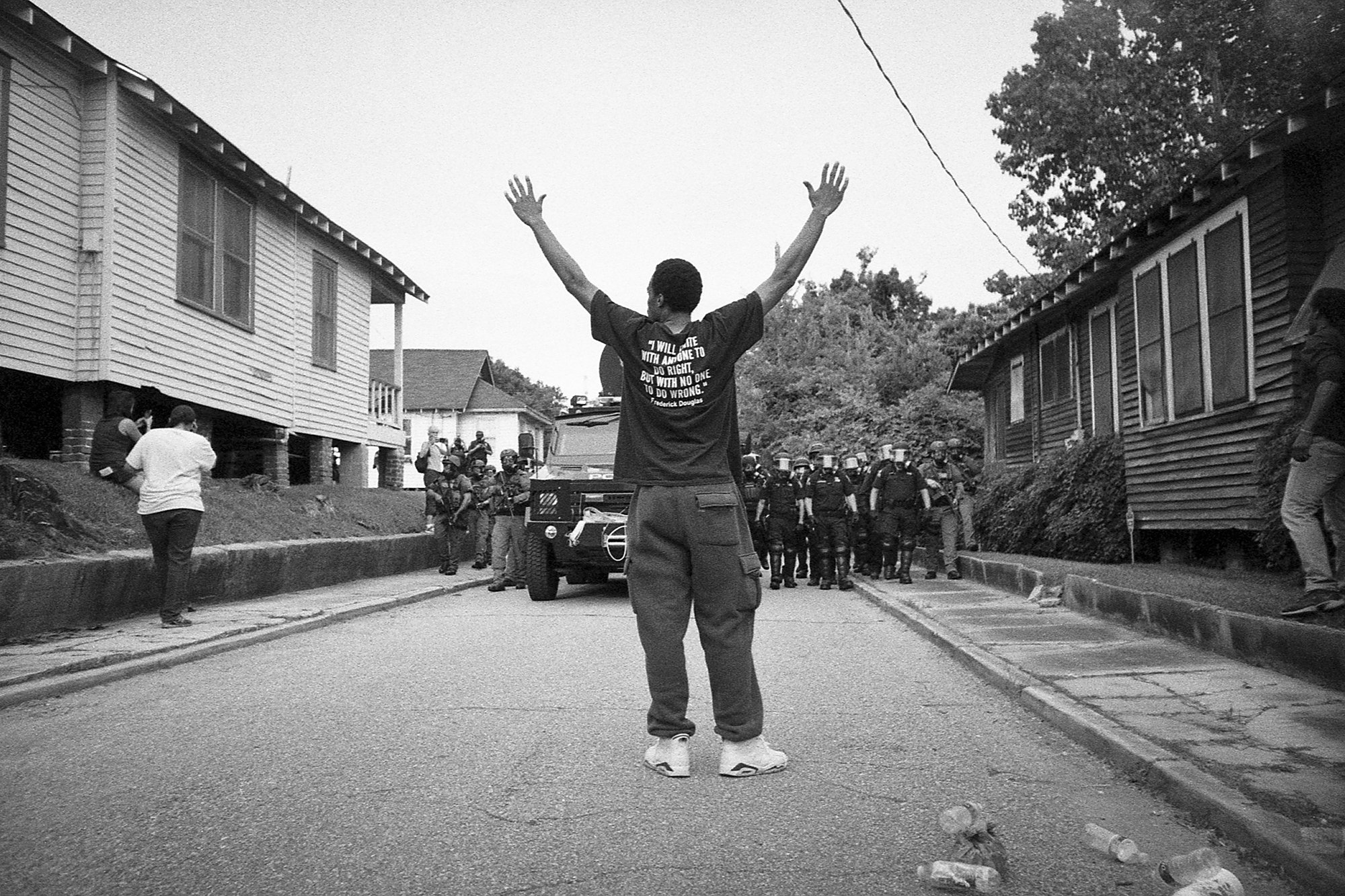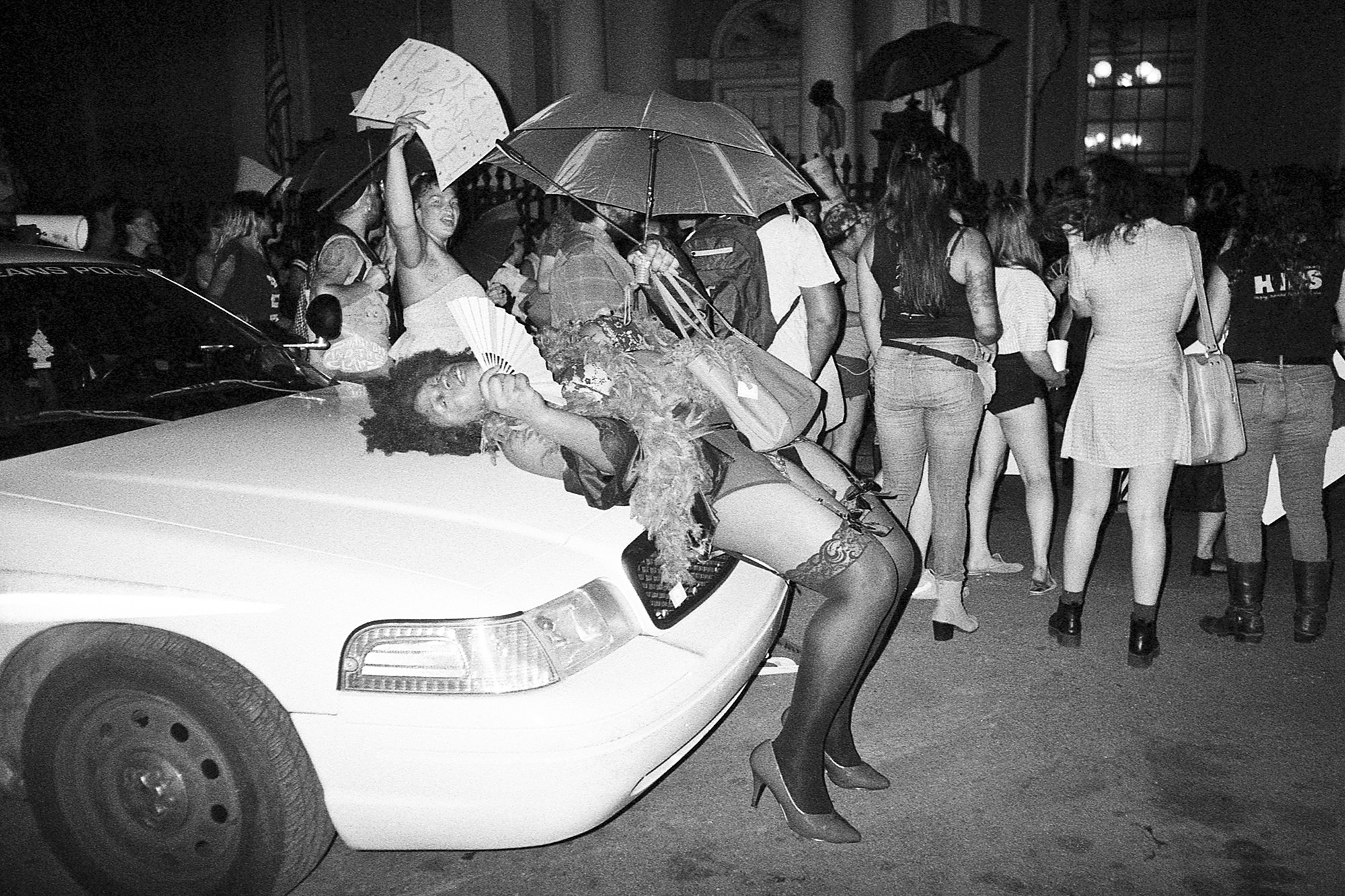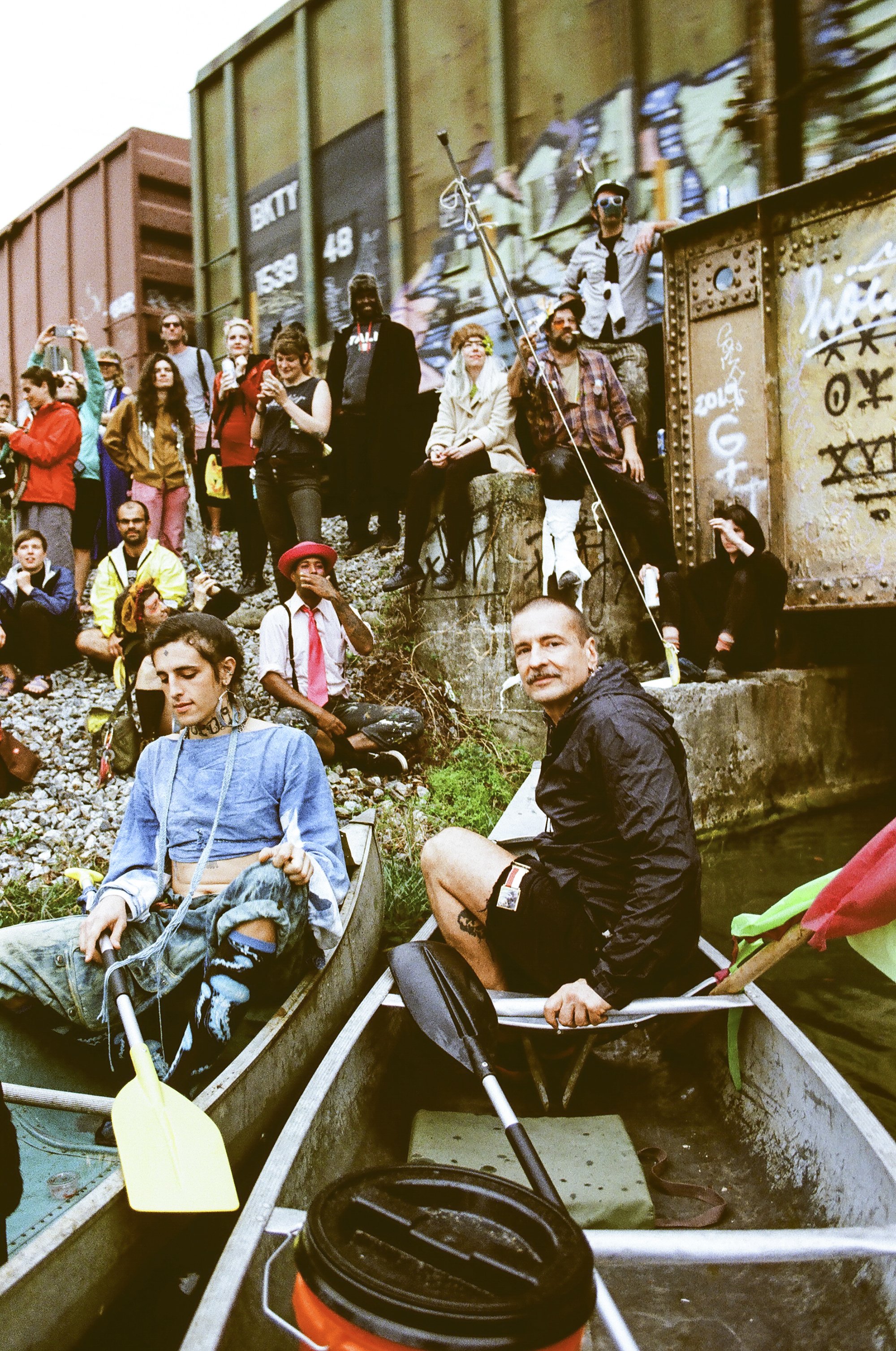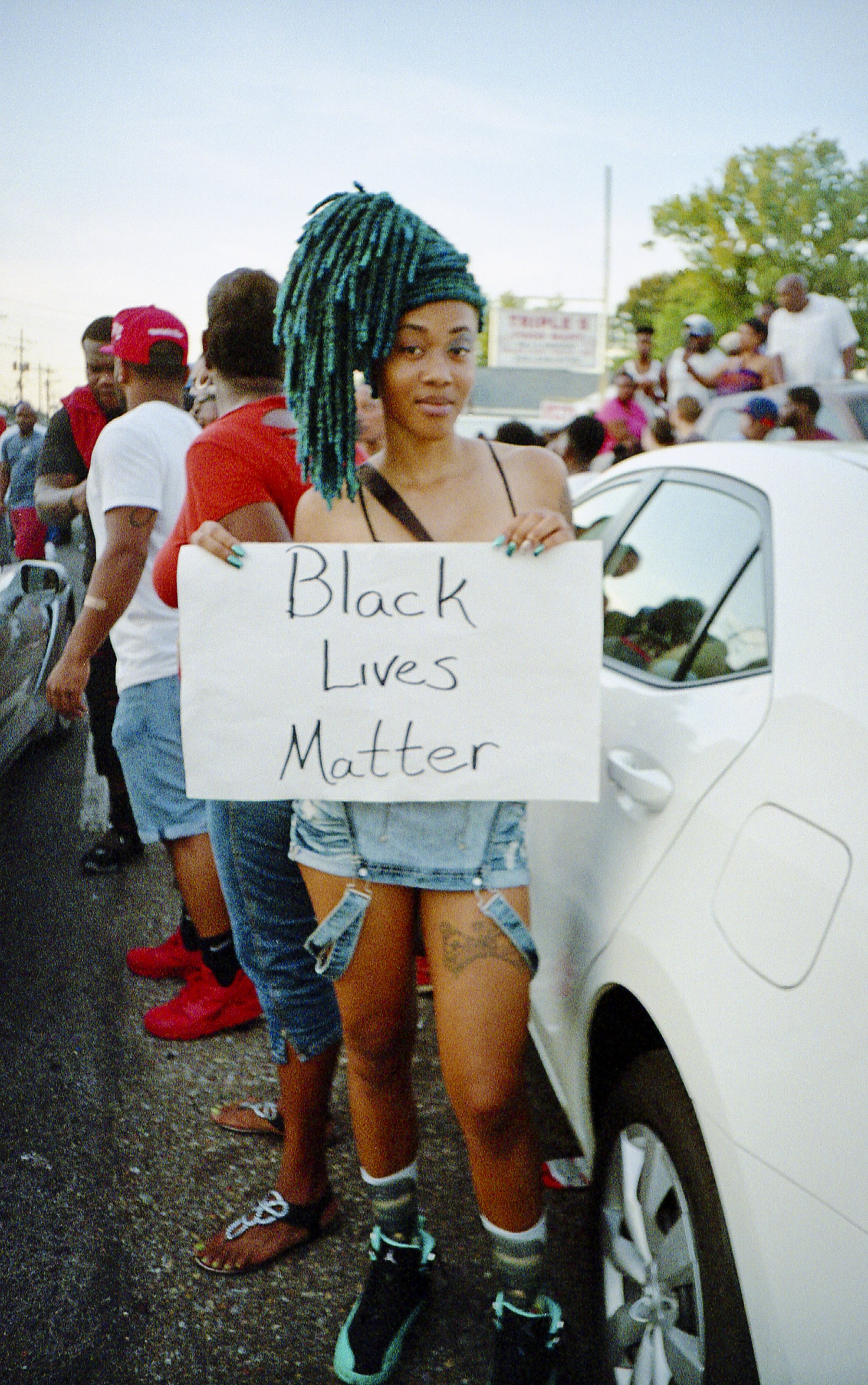Featured Photographer: Beau Patrick Coulon - “Revel and Revolt”
We as photographers and artists are constantly searching for moments worth capturing and preserving. Often it’s in the innate beauty of landscapes or the human form in the studio, but for New Orleans-based photographer and filmmaker Beau Patrick Coulon, the beauty is in documenting the social conditions and events in which people are inspired to confront ugliness, ignorance, and hate in an attempt to bring about cultural change. His book Revel and Revolt by Burn Barrel Press is a straightforward yet personal visual documentation of energy-filled punk-rock mosh pits and passionate demonstrators demanding justice and direct action against oppression. The images in the book share a common visual language that works with synchronicity by combining their aesthetic parallels and seemingly identical kinetic energy signatures. The resulting body of work is a low-fi, high-octane time capsule of New Orleans from 2013 to 2020 that represents more than social documentary - a worldview and deep ethos that is informed by both his first- hand experience in dealing with class struggle and his participation in subculture movements as a natural progression of his life’s journey.
Born in Hollywood under the shadow of the US 101 freeway in a funky apartment building called the Shangri-Lodge, Coulon’s life began with instant instability. Being the eighth of 10 siblings from his mother’s second of three marriages, he had the odd experience of having many siblings and yet growing up like an only child, as most of his siblings were raised by their fathers. He was no exception; his parents’ marriage dissolved about as quickly as it was sanctified and he soon found himself with his father and his father’s new wife on his way to small-town Oklahoma. The severe culture shock from being transplanted from the diversity of Los Angeles to the monoculture of a town ruled by evangelical Christianity was difficult. This was impacted by the fact that his father’s new wife left the picture almost as soon as she entered it. From the ages of eight to 12 years old, while his father was constantly working, he raised himself.
This lack of stability and structure led to a full gamut of behavioral issues and an “increasingly shitty outlook and attitude about life.” He struggled with social alienation, a lack of supervision, and when he thought it couldn’t get worse, what little stability he had came crashing down. His father’s business totally failed, he got himself suspended from school, and with nowhere else to turn, he convinced his father that it was a sensible idea to move back to Hollywood to live with his mother, creating culture shock all over again, this time with the hormonal bells and whistles of puberty. He found that his situation was not better but comparably worse. With his school transcripts back in Oklahoma, Coulon found himself in remedial classes with kids who had trouble reading, but definitely knew how to fight. His first school month was filled with daily altercations that only fueled his discontent with his living arrangements in California.
Each day on the walk to school, Coulon passed Hollywood Boulevard where he noticed groups of kids not that much older than himself: street kids, punk rockers, gangbangers, drug dealers, and everything in between. The punks were usually sitting on the sidewalks panhandling, and you know what? They were nice to him. They’d let him hang out, smoke cigarettes, and drink beer with them. It took a long time for his mother to notice that he was soon skipping school altogether, spending his free time hanging out on the street bumming change and trying to get drunk or high. When she finally realized what he was up to, he was ordered by his mother to move back to Oklahoma. But this time he was done being forced to bounce back and forth between his parents - he didn’t return.
By the time he was 15 he was traveling by freight train across the country, using a network of derelict squats, punk houses, collectives, and DIY art spaces as locations on his adventures throughout young adulthood. Camera in hand, often a disposable or 35 mm SLR, he began to document and preserve the people and places he visited. It was more than documentation for him: it was about visibility. With no social media or digital cameras at the time, the negatives he held onto memorialized the people with whom he had been close - ones who had been shot, killed, or simply disappeared from the streets. He shares that, “We felt invisible. We were falling through the cracks [of society] and this was our proof. We existed and our experiences were real. This was our record of it. At the time that representation was really important to me, on a level that I don’t even think I understood at the time.”
It was these journeys that shaped his photography, as well as Coulon’s worldview and code of ethics, not only because of his life circumstances, but also by the culture he was exposed to: ‘80s punk bands, record covers, zines, and skateboard graphics. It was the culmination of these influences that led him to become who he is today: an abolitionist, anti-capitalist, anti-racist, and anti-fascist photographer who “shoots for the underdog.” Over the course of his life, Coulon has documented the people and events that speak to him: the inspiring uprising and direct action of communities that are trying to “conquer power and work towards liberation...to reclaim what has been taken – whether it’s centuries of uncompensated labor or stolen land.” He finds endless beauty and inspiration in the fight against “anything that poses a direct threat to those who want us beaten down and atomized.” He says that it’s like “capturing lightning in a bottle” when he is able to make images that embody the transition of people and communities as they reject apathy and embrace direct coordinated action. It’s this energy that inspires him to seek out and document profound split-second moments of chaos and energy that often go unnoticed by the Big Four news agencies reporting on civil and cultural unrest.
Coulon acknowledges that sometimes photographing protests, demonstrations, and actions is not the hard part, but the not photographing them, or as he puts it, “having a moral compass.” Since his personal work reflects his values, he often takes pause and thinks deeply about whether or not it’s appropriate to photograph the scene in front of him since the individuals or groups he documents could be in the process of committing a crime, even if that crime is just one imposed by the state. He notes that, “I don’t believe that there are any rules in art other than the ones that you make up. In other words, there are countless rules in art but they are self-imposed. So, being an individual that has a code of ethics means I believe in consent.” With this in mind, his photography is an extension of his solidarity with his community. He openly admits that he doesn’t follow “some liberal idea of objectivity.” He’s not telling the story of his community from the perspective of a news reporter pretending both sides are equal, because they aren’t equal to begin with. That’s what he’s fighting for, that’s the whole point. The resulting body of work is a sentimental and timeless look into the working-class struggle of America and its increasingly defiant stance on continuing to live within the confines of the status quo. If there ever was a time to revel and revolt, the time is now.
GALLERY
ABOUT THE ARTIST
Beau Patrick Coulon is a New Orleans-based photographer and filmmaker with a wide range of commercial, fine-art, and documentary experience; his imagery often draws from human struggle and subcultural movements. Born in Hollywood, he is the eighth of ten siblings, and he spent much of his childhood bouncing back and forth between California, Florida, and Oklahoma. At 13, he moved out of his mom's apartment to live on the streets with punks he met on Hollywood Blvd while skipping school.
Coulon traveled across the country by thumb and freight train, hopscotching between a network of derelict squats, punk houses, collectives, and DIY art spaces. He first arrived in New Orleans in the mid-90s and found kitchen work in the French Quarter. Beau also worked seasonally as a farmhand in Washington, pouring concrete in Montana, harvesting sugar beets in Minnesota, bookbinding in S.F., doing demolition in NYC, and framing art in Tampa Bay. Through these experiences, he formed connections with people from every walk of life and developed a perspective informed by decades of working-class struggle and nomadic living.
Although he no longer lives on the road, his past imbues his visual storytelling. Coulon's imagery is that of one whose love for his subject matter overwhelms the frame. His work speaks the language of the street and transient Americana. Coulon's photographs explore everyday splendor and profound moments that often go unnoticed among marketed notions of refinement, class, and commerce.
Coulon has shown his work in numerous galleries and art spaces around the U.S., often appearing in group exhibits and benefit shows. He's had two solo shows, Marginal Transience, which opened at ABCO Art Space in Oakland and Nomad gallery in Los Angeles in 2014, and Terminal Impermanence, which opened in L.A. at Makers Mess Studio in 2016. In 2019 he curated Nowhere Near, a group photo show presented in a refurbished boxcar at the Black Butte Center for Railroad Culture. Beau has also taken his passion for visual art and narrative into the field of filmmaking, having worked on over 50 productions ranging from music videos, documentaries, feature films, and T.V. series. When he's not collaborating with a film crew, he's experimenting with a range of analog film media to explore themes of adversity, liberation, adventure, and rebellious humor.
His first book of photography, Revel & Revolt, is a co-edition with Burn Barrel Press and Defend New Orleans’ imprint: DNO books. In it, Coulon presents his straightforward yet personal visual documentation of protests, parades, and the punk scene in New Orleans from 2013 to 2020.
Revel & Revolt was published on April 12th, 2021
ABOUT THE AUTHOR
Michael Behlen is an instant film addict and the founder and publisher of Analog Forever Magazine. Behlen is an obsessive community organizer in the film photography world, including previously launching the independent publishing projects PRYME Magazine and PRYME Editions, two enterprises dedicated to the art of instant film. Through these endeavors, he has featured and published 250+ artists from around the globe via his print and online publications.
He has self-published two Polaroid photobooks -“Searching for Stillness, Vol. 1” and “I Was a Pioneer,” literally a boxed set of his instant film work. His latest book, Searching for Stillness Vol II was published in 2020 by Static Age.
Behlen’s Polaroid photography can be found in various publications including Diffusion Magazine, Fraction Magazine, Seities Magazine, and Polaroid Now (Chronicle Books, 2021). He loves the magic sensuality of instant film: its saturated, surreal colors; the unpredictability of the medium; its addictive qualities as you watch it develop. He spends his time shooting instant film and backpacking in the California wilderness, usually a combination of the two. Connect with Michael Behlen on his Website and on Instagram!






























Yoav Friedländer’s "A Form of View" series offers a unique look at the intersection of American and Israeli cultures. Born in Israel but heavily influenced by American media, Friedländer uses photography to create simulated realities, exploring how the medium influences our understanding of the world and blurs the line between reality and fiction.